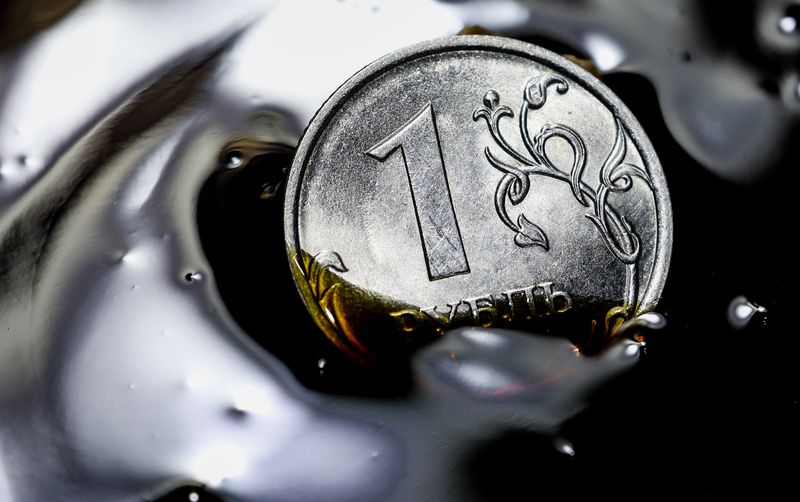(Reuters) -The Russian rouble firmed sharply in Moscow trade on Thursday to levels last seen before Russia sent tens of thousands of soldiers to Ukraine, while stocks indexes jumped higher, shrugging off a new round of sweeping western sanctions.
The rouble ended the day 5% higher at 75.75 against the dollar after briefly touching 74.2625, its strongest level since Feb. 11.
Moves in the rouble were jittery and trading volumes on the Moscow Exchange were small compared with levels seen before Russia started what it calls "a special military operation" in Ukraine on Feb. 24.
The rouble has recently been steered by mandatory conversion of dollar and euro revenues by export-focused companies, while demand for forex has been limited by capital controls that the central bank imposed as the rouble crashed to record lows in March.
Finance Minister Anton Siluanov said on Wednesday that his ministry together with the central bank were working on measures to make the rouble exchange rate more predictable and less volatile.
Against the euro, the rouble firmed more than 6% to 81.45 after touching its strongest level since late October of 80.69.
On the interbank market the rouble was weaker. Banks offered to buy dollars at 76.75 and sell them at 81.75. The euro/rouble rates stood at 83.50 and 88.95, respectively.
The Russian currency has so far shrugged off fears that Russia was edging closer to a potential default on its international debt as it paid dollar bondholders in roubles and said it would continue to do so as long as its foreign exchange reserves were blocked by sanctions.
On the stock market, the rouble-based MOEX Russian index climbed 0.9% higher to 2,635.4 after falling the day before when shares took a hit from new sanctions.
The United States on Wednesday announced a new round of penalties targeting Russian financial institutions, as well as Kremlin officials and their family members.
The dollar-denominated RTS index rose 5.6% to 1,092.4 points, its highest since Feb. 23.
"Non-residents are still not taking part in trading, while a ban on short selling remains in place. We expect a mixed dynamics of the indexes in the near future... Volatility will stay," Sberbank Asset Management said in a note.

For Russian equities guide see
For Russian treasury bonds see